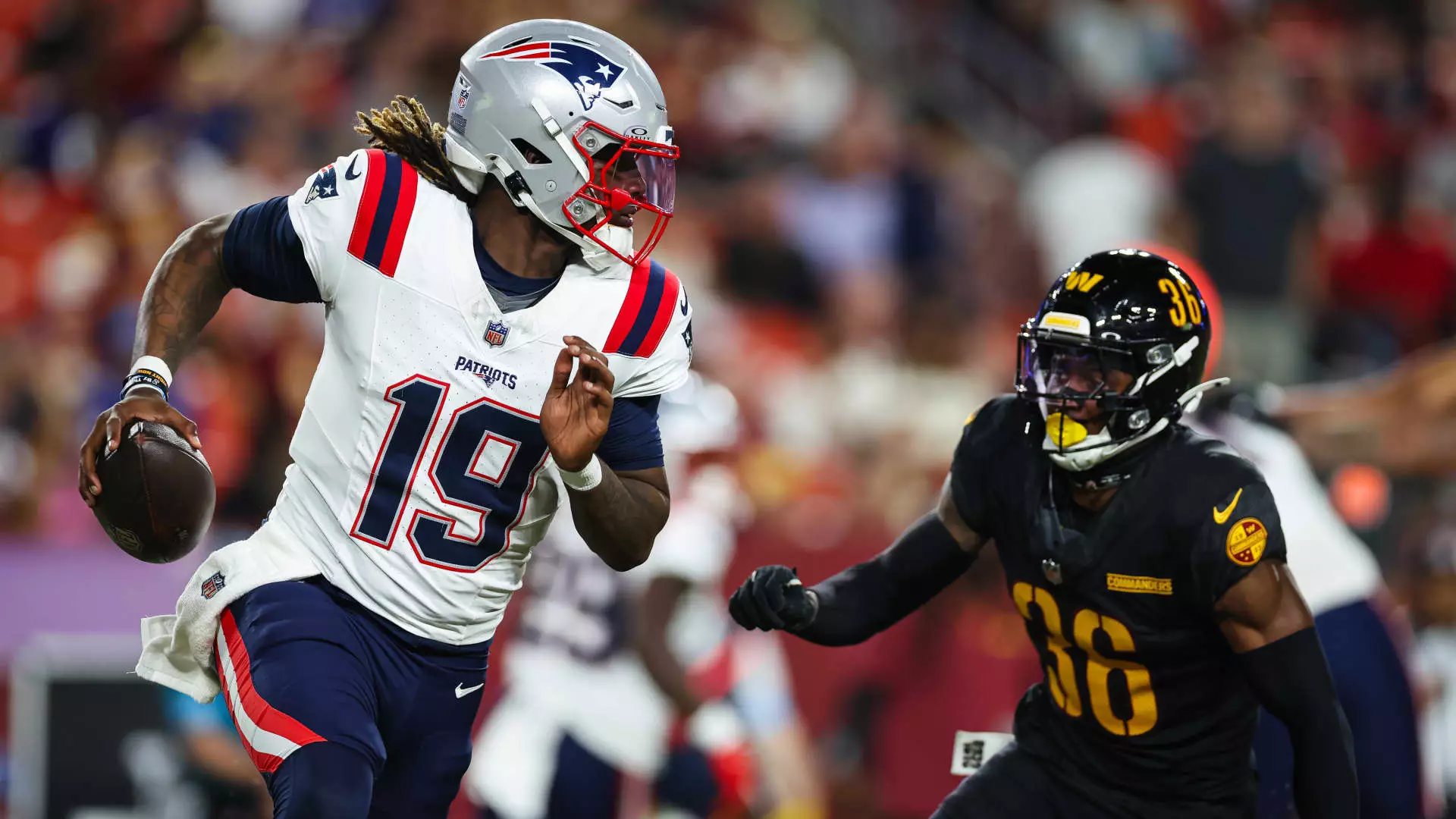Sports betting in the U.S. has reached new heights with the NFL season underway. Projections from the American Gaming Association suggest that U.S. adults will wager a staggering $35 billion this season. This marks a significant increase of more than 30% from last year’s $26.7 billion in wagers. As the legalization of sports betting expands across the country, states like Maine, North Carolina, and Vermont have joined the movement, allowing operators to launch in their jurisdictions. Additionally, court decisions have paved the way for sports betting to relaunch in Florida through Hard Rock International. With 38 states and Washington D.C. now permitting sports betting, the industry is poised for exponential growth.
Despite the meteoric rise in sports betting activity, the stocks of major gambling companies have not experienced the same level of growth. Companies like DraftKings, Penn, Caesars, MGM Resorts, and Entain have all seen negative year-to-date performances. However, Flutter, the owner of FanDuel, has defied this trend with a 19% increase in its stock value after listing on the New York Stock Exchange. Flutter’s success can be attributed to its second-quarter earnings that exceeded expectations, driving investor confidence.
To stay ahead in the competitive sports betting market, licensed sportsbooks are constantly developing new strategies to attract and retain customers. The NFL kickoff presents a prime opportunity for sportsbooks to introduce cutting-edge technology and innovative wagering options. Companies like FanDuel are partnering with platforms like YouTube to offer unique promotions such as the “Sunday Ticket” offer, where customers can watch out-of-market NFL games with a minimal wager. These initiatives aim to enhance the overall customer experience and increase engagement.
With more than 95% of sports wagers now taking place online, speed and convenience have become paramount for sportsbooks. This is particularly evident in micro-betting, where wagers are placed on specific plays during live games. Fanatics Sportsbook, a newcomer to the industry, has leveraged its existing database of 100 million sports fans to drive customer acquisition. By offering rewards from its merchandise and collectibles businesses, Fanatics has cultivated a loyal customer base and expanded its operations to 22 states.
Fanatics Sportsbook’s CEO, Matt King, has emphasized the importance of unique player rewards and customer engagement. The company’s recent Fanatics Fest NYC event garnered positive feedback from customers, solidifying its position as a rewarding sportsbook. Through strategic partnerships and customer-centric initiatives, Fanatics Sportsbook aims to capitalize on the sports equinox – a period when multiple sports are in season simultaneously.
While some companies like DraftKings have seen success in their NFL offerings, others like Penn Entertainment are facing challenges. Penn’s digital business has struggled, with shares declining by 28% this year. However, the company remains optimistic about its partnership with ESPN Bet, which has attracted 31 million members since its launch. As competition intensifies, companies are focusing on product innovation, enhanced user experiences, and expanded offerings to drive customer loyalty and retention.
With advancements in technology and an evolving regulatory landscape, the future of sports betting in the U.S. looks promising. Companies that can adapt to changing consumer preferences, leverage data-driven insights, and deliver personalized experiences are likely to thrive in this dynamic industry. As the market continues to expand and evolve, sportsbooks must stay ahead of the curve to capture a larger share of the growing sports betting landscape.

